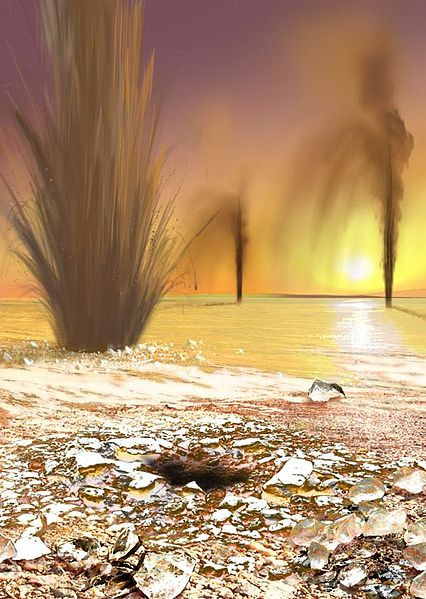Scientists Find New Evidence of Water on Mars

Swedish scientists who have analysed the nature of rock formations in a crater on Mars believe they were probably formed by a "debris flow" caused by flowing water within the last 200,000 years. This is far more recently than previous estimates of liquid water on the Red Planet, which was during the planet's last "ice age" 400,000 years ago.
The study was done by a team from the Department of Earth Sciences at the University of Gothenburg and published in the journal Icarus. The team compared the Mars rock formations – at a crater dated as 200,000 years old - with similar formations at the Norwegian archipelago of Svalbard.

A debris flow occurs when liquid water saturates debris on a slope to the point where it becomes too heavy and slips downward. When the debris flow stops, landforms including lobate deposits and paired levees are created. The team were surprised to find that the crater in question was so "young," as that meant water had probably flowed there far more recently than had been thought.
Team spokesman Andreas Johnsson explains:
The meltwater-related processes that formed these deposits have been exceptionally effective also in more recent times
"Our study crater on Mars is far too young to have been influenced by the conditions that were prevalent then. This suggests that the meltwater-related processes that formed these deposits have been exceptionally effective also in more recent times."
Although the surface of Mars is today barren and too cold for liquid water, there has long been speculation that it once contained flowing water in substantial quantities – which astrobiologists say is the most essential precursor to finding life beyond earth.
If we find on Mars evidence for a second genesis, that changes everything
Jupiter's planet Europa has long been suspected of having a liquid ocean up to 60 miles deep beneath its thick ice crust. If it is discovered that life ever existed on Mars, it would shorten the odds on life being found elsewhere in the universe even if it was discovered both came from the same "source" – possibly from comets, as has been speculated.
Astrobiologist Chris McKay of NASA's Ames Research Centre says finding out life once evolved on Mars and was linked to life on earth would be profound though "not as profound as finding that there's life on Mars and finding that it represents a second genesis. If we find on Mars evidence for a second genesis, that changes everything,"
© Copyright IBTimes 2025. All rights reserved.






















